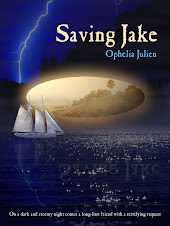Way back in the
nineties, I was getting ready to write a nonfiction book. At the time, none of
my novels were going anywhere, and someone had told me it was easier to get a
nonfiction work published than to find a publishing house for fiction. I don’t
know if that’s true, and I’m sure nonfiction workers will probably be happy to
enlighten me, but that was the wisdom I had heard and I so wanted a work in
print that I figured I’d take a shot at nonfiction.
I just needed to do
some research. I started at the library, and in the days before widespread
Internet use, I contacted a reference librarian who was happy to put together
some information for me. My topic? How many writers vs. how many artists (fine
arts) could she find who had chosen suicide? I know this sounds like a pretty
grim topic, but I was curious. And she, being a very skilled and experienced
reference librarian, didn’t even sound surprised when I told her what I was
looking for. She didn’t disappoint, either. She came back with the two lists.
The artist list had two names on it, one of whom was Van Gogh. The other was an
architect and I’m sorry to say that the name was not familiar to me.
The writers’ list,
however? Over thirty. She came up with the ones we all know about: Hemingway
and Plath, for instance. And then she gave me names of writers I never knew had
met death by their own hand, like Robert E. Howard (the creator of Conan the
Barbarian.) I was expecting the list of writers to be longer, but I wasn’t
expecting the number of names that I got.
Most writers I know
are given to bouts of self-doubt and low spells. It’s not easy to work alone
all the time, and rejections don’t make the road any smoother. That said, I
decided to go to step two of my research.
Now, step two
depended on questionnaires I was sending out to every writer I knew, published
or not, and the thrust of my questions had to do with self-esteem (generally
low) and depression. My working title for my book was I Know Why Writers Kill Themselves, and I was going to do an
anecdotal study on the working minds of those who like to tell stories. Was
everyone as susceptible to those low spells as I am? For me, there is something really depressing about
self-doubt and writers’ block that positively delves into my soul and makes
facing the computer, the typewriter, or even a notebook and a pen, the
equivalent of marching up Mt. Everest in shorts and flip-flops. Was I the only one?
I had the idea that I wasn't. Probably the very
best example I have EVER seen of writers’ doubt and block was in the movie “Adaptation”,
about screenwriter and source adapter Charlie Kaufman. If you haven’t seen it
yet and you write, you need to take a look at it. In fact, while Jim was
watching the scene where Mr. Kaufman was referring to himself as “fat, bald,
repulsive Charlie Kaufman,” he leaned over to me and whispered, “You’re not
like that, are you?” and I just said, “You have no idea.”
At any event, most of
the responses I got back on my questionnaires referred to deep depression, therapy,
medication, and for lack of a better word, the abyss. I only got two
questionnaires back where the respondents told me they never felt this kind of depression. Interestingly enough, both of them wrote nonfiction, and both of them began
writing as adults. The rest of us hopeless mopes had all started writing stories
in childhood. Significant? The nonfiction vs. fiction, and beginning to write as
a child vs. as an adult? I don’t know. But it’s interesting.
The face of writing
and publishing has changed since I first started working on that project. For
one thing, self-publishing is a route available to everyone, so if we choose
not to do the rounds of rejections first from agents and then from editors, we
can still get a book online and into print. That helps. (Although there’s
always those bad reviews…)
But don’t kid
yourself. I’ll bet you almost every fiction writer out there, whether self- or
traditionally-published, has those same demons, just hiding themselves under
different taglines like “You’re not good enough” and “You have no talent” and “If
you were a better writer, you’d sell more,” and the king of all demons – “You
should just quit.”
Happily, most writers
can ignore this stuff and continue to produce their stories. Me, too. But there
are times…





No comments:
Post a Comment